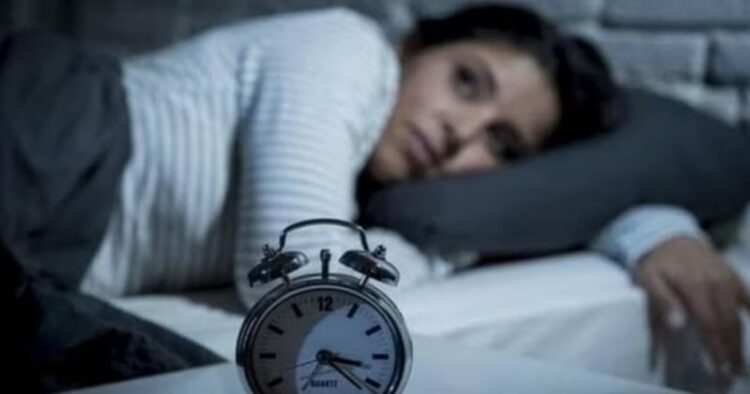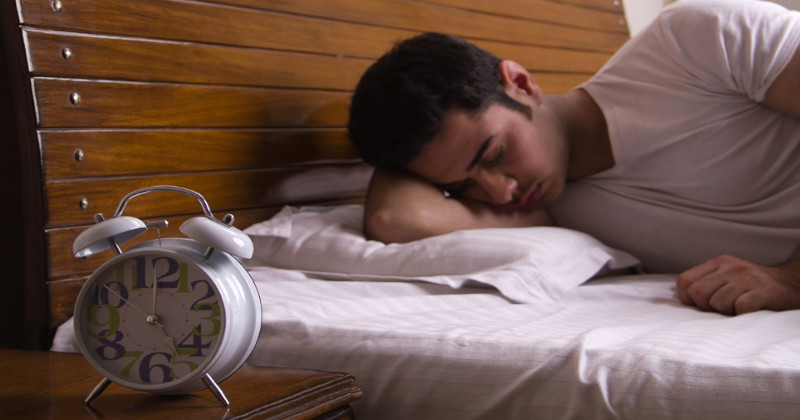According to a new study by UCL researchers, regular physical activity may protect against cognitive decline as one ages, but this protective impact may be lessened for people who do not receive enough sleep.
The study, published in The Lancet Healthy Longevity, looked at cognitive function over 10 years in 8,958 people aged 50 and over in England. The research team investigated how different combinations of sleep and physical activity habits might affect people’s cognitive function over time. They found that people who were more physically active but had short sleeps – less than six hours on average – had faster cognitive decline overall, meaning that after 10 years their cognitive function was equivalent to peers who did less physical activity.
Lead author Dr Mikaela Bloomberg (UCL Institute of Epidemiology & Health Care) said: “Our study suggests that getting sufficient sleep may be required for us to get the full cognitive benefits of physical activity. It shows how important it is to consider sleep and physical activity together when thinking about cognitive health.
“Previous studies examining how sleep and physical activity might combine to affect cognitive function have primarily been cross-sectional – only focusing on a snapshot in time – and we were surprised that regular physical activity may not always be sufficient to counter the long-term effects of lack of sleep on cognitive health.”
The study found, in line with previous research, that sleeping between six and eight hours per night and higher levels of physical activity were linked to better cognitive function.
Those who were more physically active also had better cognitive function regardless of how long they slept at the start of the study. This changed over the 10-year period, with more physically active short sleepers (less than six hours) experiencing more rapid cognitive decline.
This rapid decline was true for those in their 50s and 60s in this group, but for older participants (aged 70 and over) the cognitive benefits of exercise appeared to be maintained, despite short sleep.
Co-author Professor Andrew Steptoe (UCL Institute of Epidemiology & Health Care) said: “It is important to identify the factors that can protect cognitive function in middle and later life as they can serve to prolong our cognitively healthy years and, for some people, delay a dementia diagnosis.
“The World Health Organisation already identifies physical activity as a way to maintain cognitive function, but interventions should also consider sleep habits to maximise long-term benefits for cognitive health.”
For the study, the researchers used data from the English Longitudinal Study of Ageing (ELSA), a nationally representative cohort study of the English population. Participants were asked how long they slept on an average weeknight and were split into three sleep groups: short (less than six hours), optimal (six to eight hours) and long (greater than eight hours).
They were also given a score based on the frequency and intensity of self-reported physical activity and divided into two groups: more physically active (the top third of scorers) and less physically active (the other two thirds). Cognitive function was assessed on the basis of an episodic memory test (asking participants to recall a 10-word list, both immediately and after a delay) and a verbal fluency test (asking participants to name as many animals as they can in a minute).
The researchers adjusted for a number of confounding factors, such as participants having done the same cognitive test before and therefore being likely to perform better. They also excluded people with self-reported dementia diagnoses and those whose test scores indicated some cognitive impairment, so that behaviour changes linked to preclinical Alzheimer’s disease (such as sleep disturbance) did not inadvertently affect the results.
In terms of study limitations, the researchers relied on participants self-reporting their sleep duration and physical activity. The next steps, the researchers said, may be to repeat the results in more diverse study populations, examine more cognitive domains and more domains of sleep quality, and use objective measures such as a wearable physical activity tracker.
(with inputs from ANI)




















Comments